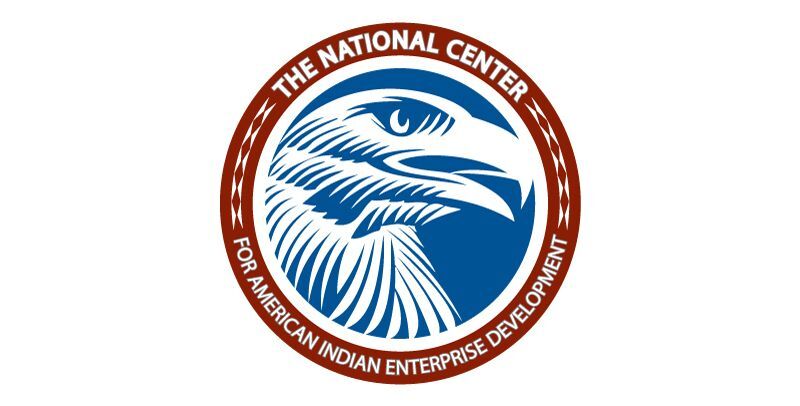Indian Country's Federal Policy Priorities
The National Center and 17 Other Native Organizations Release New Economic Policy Brief
The National Center for American Indian Enterprise Development and 17 endorsing Native organization partners jointly released a comprehensive brief outlining 34 critical policy actions the Administration and its agencies can take in 2026 to enhance and grow the federal government’s support of Tribal Nations as they build and sustain vibrant economies that benefit not just Native people, but all Americans.
The brief, titled “Tribal Economic Development: Indian Country’s Policy Priorities for the Federal Government,” presents a progress report on the first year of the Administration’s second term with respect to Indian Country economic development and outlines the key steps the Administration can take to grow this progress in 2026. It serves as a comprehensive update to the policy brief the endorsing Native organizations provided to the Trump Administration Transition Team in late 2024.
Importantly, the brief details how Indian Country’s broad economic priorities align in key ways with those of the Administration, such as: modernizing the federal tax code; reducing federal red tape through deregulation; increasing federal and other investments in rural economic development; and strengthening local control to allow communities – including Native ones – to make decisions that fit their distinct needs and bolster economic sovereignty.
Read the full brief here (PDF 1.34 MB).
The Trump Administration: Emerging Impacts on Indian Country
At our 2025 Reservation Economic Summit (RES), The National Center held a heavily attended listening session to elicit the perspectives of Tribal and Native organizational leaders, key decision-makers, and staff about the emerging impacts of actions taken by the Trump Administration on Tribal Nations and their citizens. We subsequently invited them and others across Indian Country to complete a short survey sharing similar information. The final assessment synthesizes and shares the key actions and impacts shared by those who participated in these two fact-finding endeavors.
KEY FINDINGS: The National Center’s comprehensive assessment revealed 15 key actions already taken or currently underway by the Trump Administration commonly identified by those providing input at the listening session or through the survey. As seen below, the actions are heavily focused on actions impacting Indian Country economic development and growth, which reflects the work and focus of the primary Indian Country constituencies The National Center serves:
FEDERAL AGENCY ADMINISTRATION AND WORKFORCE IMPACTS
- Reducing the Federal Workforce: slowing administrative responsiveness/funding deployment to Indian Country
- Closing Regional Federal Offices: threatening the quality/timeliness of service delivery and technical assistance
- Dismantling the AmeriCorps program: eliminating an important source of Indian Country jobs/services
FUNDING AND ECONOMIC IMPACTS
- Consolidating Government Contracting at GSA: endangering the progress made on Buy Indian Act purchasing
- Freezing Current Federal Funding Streams: disrupting the operation of critical Indian Country programs/services
- Rescinding Funding Agreements: resulting in the loss of hundreds of millions of already-allocated dollars
- Terminating Future Federal Grant Funding: eliminating already-awarded future funding for Indian Country
- Canceling and Deprioritizing 8(a) Contracts: endangering Native economic growth, especially in rural areas
- Renouncing Small Business Development Goals: decreasing procurement with Indian Country businesses
- Ending Funding for Native CDFIs: limiting their ability to grow to meet Indian Country’s significant capital needs
- Imposing Tariffs: increasing operational costs for Tribal enterprises and Native-owned small businesses
GOVERNANCE, INFRASTRUCTURE, AND STRATEGIC PLANNING IMPACTS
- Disrupting Public Services: in critical areas such as education, healthcare, public safety, and food security
- Reducing Research Opportunities: endangering Tribal natural resources and public health and safety
- Abandoning Climate Resiliency Efforts: impairing Indian Country clean energy infrastructure/job development
- Fostering Uncertainty about the Federal Commitment to Indian Country: inhibiting Tribal governance/planning
LOOKING AHEAD: The National Center recognizes this assessment constitutes a partial snapshot in time of a fluid, rapidly evolving policy landscape. For example, shortly after this assessment was finalized, President Trump released his FY 2026 Budget Request, which contains hundreds of millions of dollars in cuts to Indian Country programs. In addition to the FY 2026 Appropriations process, other emerging and pending Administration actions are of great concern to Indian Country, notably the slated restructuring of federal agencies, further wholesale reductions in the federal workforce through Schedule F, and federal deregulation that potentially fails to uphold Indian Country interests without genuine consultation with Tribal Nations. The National Center – along with our key partners across Indian Country – will continue to monitor and share key impacts as they arise.
OPPORTUNITIES FOR FEDERAL-INDIAN COUNTRY COLLABORATION: The final page of this brief outlines some key areas and ways in which Indian Country and the Trump Administration can align to strengthen Native communities and the nation as a whole.
Read and download the full survey results (PDF 314 kb)
Tribal Economic Development Policy Documents
-
Read the brief developed by The National Center and 17 other Native-serving organizations.
-
Read The National Center's testimony submitted for SCIA's hearing on the 8(a) program.
-
Testimony from National Center Chairman Derrick Watchman regarding economic development policy in Indian Country
-
Indian Country's Policy Priorities - November 2024
-
ADMINISTRATION Policy Brief (PDF 420.11 KB)Indian Country Policy Priorities for the Executive Branch - March 2024
-
CONGRESS Policy Brief (PDF 430.84 KB)Indian Country Policy Priorities for Congress - March 2024
-
Letter from Acting Assistant Secretary of Defense for Industrial Base Policy to Senator Dan Sullivan (R-AK) on the value of the SBA 8(a) program and APEX Accelerators.
-
Read about how administration policies are impacting Indian Country, based on responses from tribal leaders at a listening session at RES 2025 and a survey conducted after.


